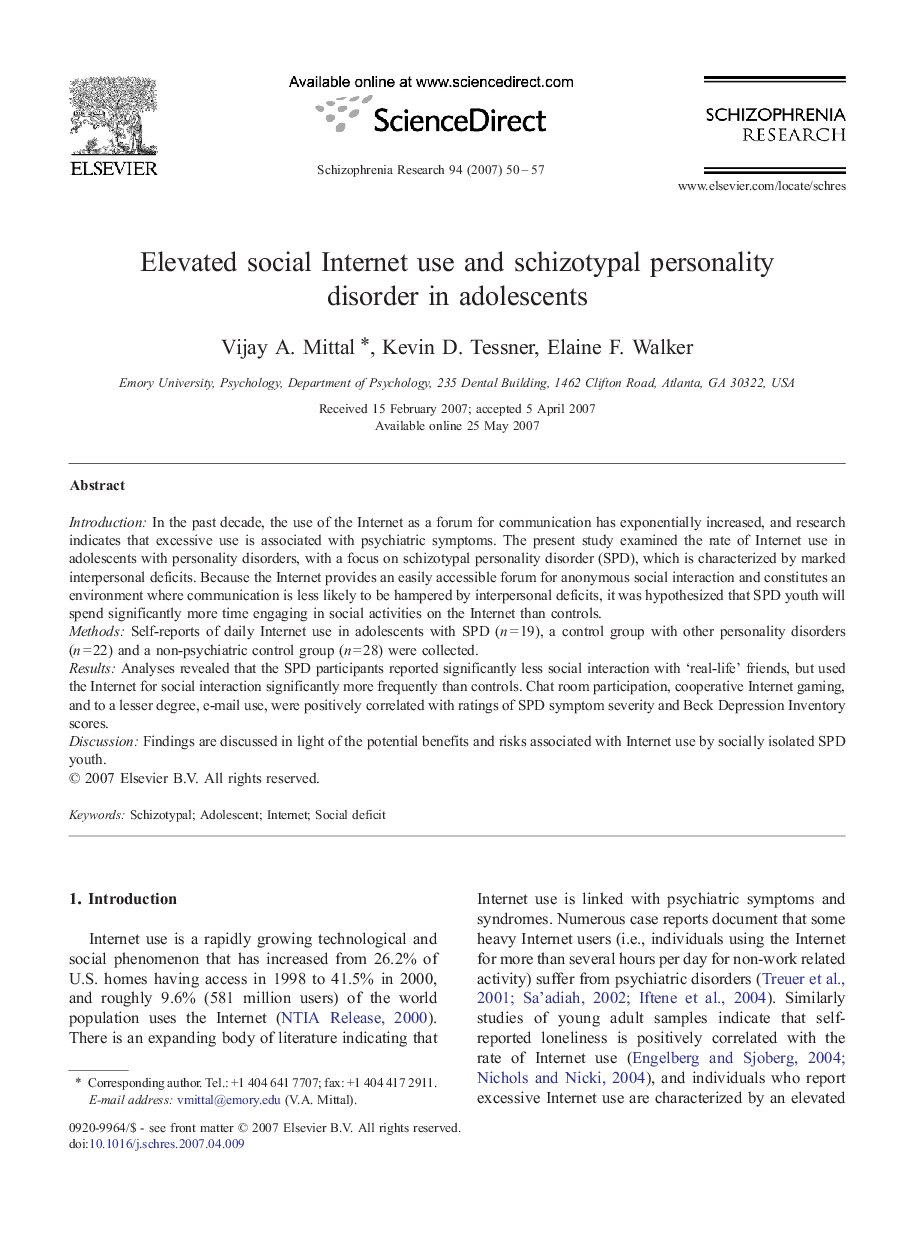| Article ID | Journal | Published Year | Pages | File Type |
|---|---|---|---|---|
| 6829293 | Schizophrenia Research | 2007 | 8 Pages |
Abstract
Abstract
Introduction
In the past decade, the use of the Internet as a forum for communication has exponentially increased, and research indicates that excessive use is associated with psychiatric symptoms. The present study examined the rate of Internet use in adolescents with personality disorders, with a focus on schizotypal personality disorder (SPD), which is characterized by marked interpersonal deficits. Because the Internet provides an easily accessible forum for anonymous social interaction and constitutes an environment where communication is less likely to be hampered by interpersonal deficits, it was hypothesized that SPD youth will spend significantly more time engaging in social activities on the Internet than controls.
Methods
Self-reports of daily Internet use in adolescents with SPD (n = 19), a control group with other personality disorders (n = 22) and a non-psychiatric control group (n = 28) were collected.
Results
Analyses revealed that the SPD participants reported significantly less social interaction with ‘real-life’ friends, but used the Internet for social interaction significantly more frequently than controls. Chat room participation, cooperative Internet gaming, and to a lesser degree, e-mail use, were positively correlated with ratings of SPD symptom severity and Beck Depression Inventory scores.
Discussion
Findings are discussed in light of the potential benefits and risks associated with Internet use by socially isolated SPD youth.
Keywords
Related Topics
Life Sciences
Neuroscience
Behavioral Neuroscience
Authors
Vijay A. Mittal, Kevin D. Tessner, Elaine F. Walker,
